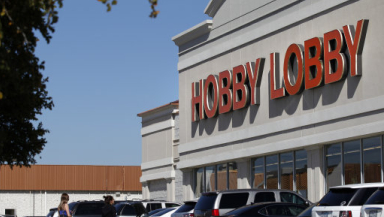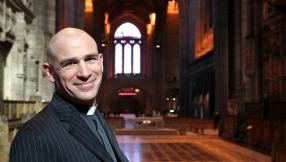
The Supreme Court has delivered its verdict on the controversial Hobby Lobby case today, ruling in favour of the arts and crafts chain.
Hobby Lobby has been embroiled in a lawsuit to gain exemption from a clause of the Obamacare legislation which requires employers to provide the morning after and week after pills as part of their health insurance plans.
A committed evangelical Christian, owner David Green has thus far refused to enforce this mandate at his company, risking fines of up to $1.3 million a day – $100 per employee.
The company does provide other contraceptives under its healthcare plan, but has refused to be complicit in what it sees as potential abortions, citing religious objection.
"These abortion-causing drugs go against our faith, and our family is now being forced to choose between following the laws of the land that we love or maintaining the religious beliefs that have made our business successful and have supported our family and thousands of our employees and their families," said Green in a statement last year.
"We simply cannot abandon our religious beliefs to comply with this mandate."
Rick Warren, pastor and author of 'The purpose driven life', has spoken out in support of the Green family, declaring that "Every American who loves freedom should shudder at the precedent the government is trying to establish by denying Hobby Lobby the full protection of the First Amendment.
"This case is nothing less than a landmark battle for America's first freedom, the freedom of religion and the freedom from government intervention in matters of conscience.
"This is not only a subversion of the Constitution, it is nonsense," he continued. "Any religion that cannot be lived out...at home and work, is nothing but a meaningless ritual."
The Obama administration, however, contends that birth control must be included in insurance plans as a fundamental aspect of women's rights.
After a lengthy legal battle, justices met today and announced the court's final decision in the landmark case.
By a 5-4 majority, they ruled that closely-held businesses can uphold religious objections which allow them to opt out of contraceptive health law requirements.
"The court stressed that its ruling applies only to corporations that are under the control of just a few people in which there is no essential difference between the business and its owners," AP reports.
"[Justice Samuel] Alito also said the decision is limited to contraceptives under the health care law. 'Our decision should not be understood to hold that an insurance-coverage mandate must necessarily fall if it conflicts with an employer's religious beliefs,' Alito said."


















